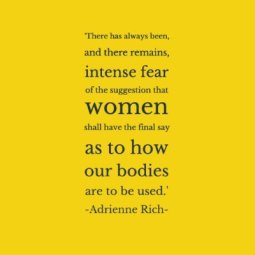The Fragments (Text Publishing, 2018) is the fourth novel by Melbourne-based author Toni Jordan, and tells the story of fictional murdered Austrian-American author Inga Karlson, and two women who love her.
In 1939, Karlson, her publisher and every copy of her long-awaited second novel perished in a deliberately lit warehouse fire in New York. Karlson and publisher are widely believed to be the only people to have read the book, and all that remains after the fire is a set of page fragments, which contain a few tantalising words from the lost novel. In the forty plus years since the fire, these fragments have taken on a mythical quality and been endlessly analysed, while Karlson herself has become a cult figure, spurning religiously evangelical devotees, numerous conspiracy theories, and people whose lives are permeated by her literary greatness.

One of these fans is Caddie Walker, named ‘Cadence’ by her late father for the protagonist of Karlson’s first novel. Having dropped out of uni following a soul-crushing affair with her shady professor (worthy of a #MeToo caning), Caddie is subsiding as a bookstore assistant. When the Karlson fragments arrive in a Brisbane museum in 1986, she finds herself lining up on the opening day. It is here that Caddie meets a mysterious elderly woman who gives her name only as Rachel, and gives her a ‘riddle’: a quote from the fragments plus additional text that no one is meant to have ever read. This riddle sends Caddie down the rabbit hole of obsessive academic and detective work in a bid to find out how it is that someone could quote Karlson’s secretive second novel when the only two people to have read it are dead.
Concurrently, we learn the story of Rachel Lehrer, a child of impoverished former landowners growing up in a gritty silk mill town in Pennsylvania in the 1930s. Underpaid by the local mill owner, Rachel’s father becomes an abusive alcoholic in a brutal showcase of the worst effects of capitalist wage slavery. Their world is stark and unforgiving, shining a light on the lives of working class families in the Depression, and the oppressive social flow-on effects of patriarchal-capitalism, manifesting in her mother’s horrifically gendered response to being a victim of domestic violence. Rachel soon escapes this bleak shitshow, journeying to New York City, where as a tenement-dwelling waitress she comes across the famed Inga Karlson, who is just months off publishing her highly-anticipated second novel.
While Inga brings an exciting level of glamour and privilege to Rachel’s life, the author is careful not to distance Rachel from her impoverished roots and the continuing daily grind of her fellow working New Yorkers. Jordan also paints a fascinating portrait of a world on the brink of the Second World War, illustrating how American Nazis, or ‘the Bund’, infiltrated everyday life and how, despite derision by those aware and critical of their racist-fascist sympathies, they were still afforded a degree of respect as ‘men with families to support’.
For a book set partially in 1986, Jordan does well to avoid overdoing the usual eighties clichés, opting for more subtle markers of the time-period, which complement the superb characterisations of Brisbane itself. Jordan also takes some awesomely unsubtle digs at the self-importance of a “certain type” of academic, which, while at times verging on slightly cheap and stereotypical, also really ring true. Stories of academics stealing their students’ work and passing it off as their own are rife, and Jordan portrays this behaviour as pathological, exploitative, and ultimately self-destructive.
I really liked this book. While it might take a leap for a contemporary reader to believe that an author like Karlson could reach such a level of fame, fortune and near universal adoration with one book, once you get your head around that it’s a satisfying ride. Jordan manages to impart both familiarity and education in the plot and structure, pushing the boundaries just a little bit so the reader can walk away feeling like they’ve learnt something.
I loved that many of Jordan’s descriptive moments were both stunning and scathing, and I found the dual narrative of Caddie and Rachel to be both compelling and complex, and its resolution nourishing. I’d have no trouble recommending it to a general audience. Get some Australian women’s writing into you today.
